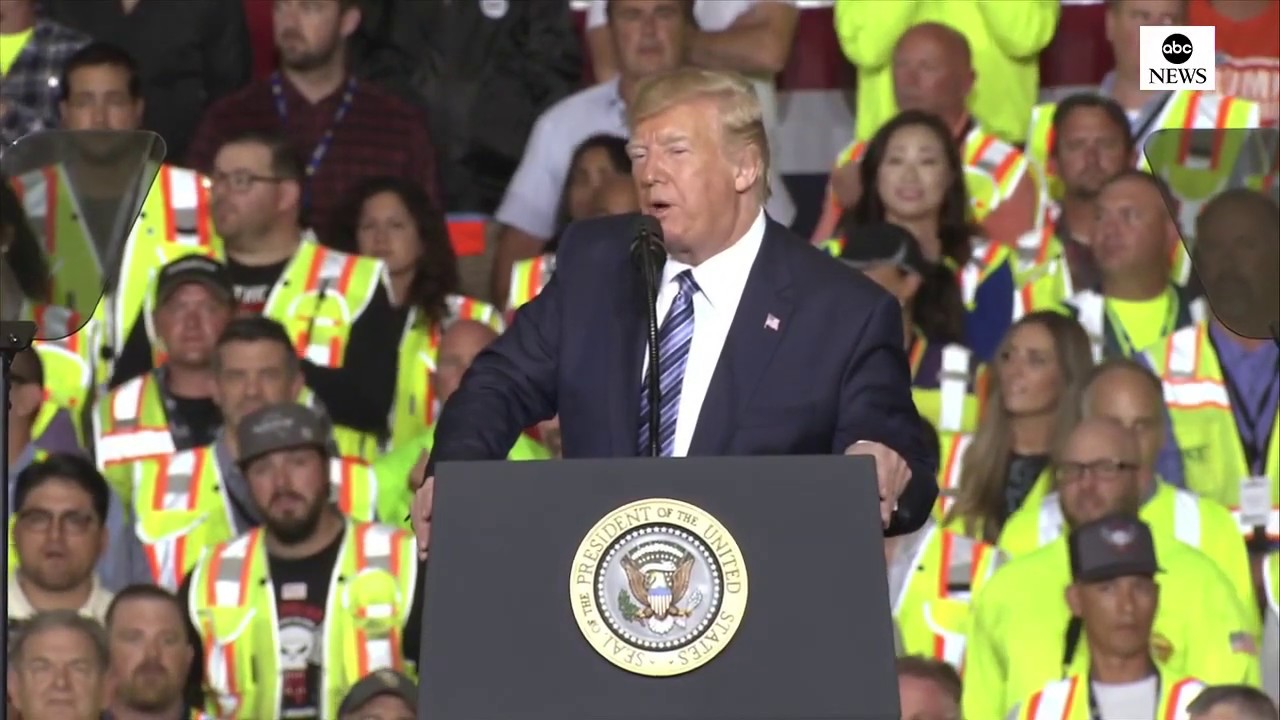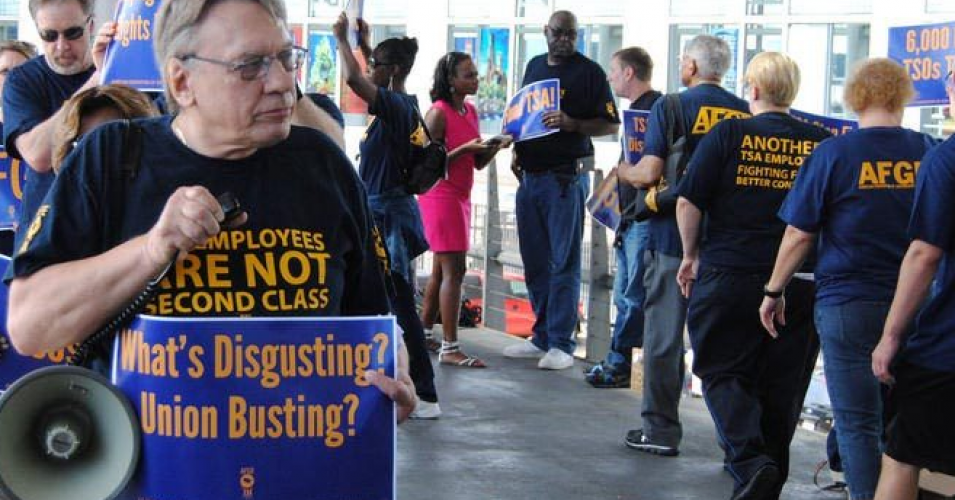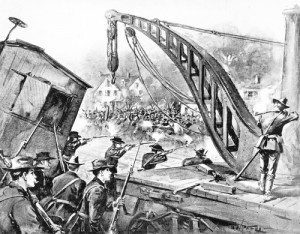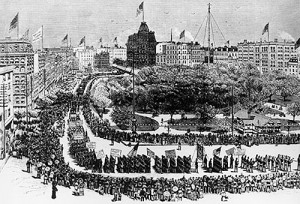By Gretschman for Occupy World Writes
![Photo by David Shankbone (Own work) [CC-BY-3.0 (http://creativecommons.org/licenses/by/3.0)], via Wikimedia Commons](http://occupyworldwrites.org/wp-content/uploads/2013/12/Day_14_Occupy_Wall_Street_September_30_2011_Shankbone_25-205x300.jpg)
Photo by David Shankbone (Own work) [CC-BY-3.0 (http://creativecommons.org/licenses/by/3.0)], via Wikimedia Commons
My involvement in the Occupy movement became direct and personal when I married my wife, who was then involved in a local Occupy group. In addition to my liberal thinking, I am a drummer in a blues band and have been a member of a trade union for over 32 years. In 1979, I quit my job in a restaurant working for what was then $.20 more an hour than minimum wage. How do I remember what I made? Because I had to threaten to quit four times to get a nickel raise each time.
In 1980 I took a job as an electronics technician, which required that I join the I.B.E.W. (International Brotherhood of Electrical Workers) under the “SPACE” agreement, an acronym for Sound, Public Address and Communication Employees. Today, this contract is called the “Limited Energy Agreement.” which covers the aforementioned disciplines as well as fire alarm, security and some CATV, broadband and voice & data employees.
During the years that my employer remained signatory to this collective bargaining agreement, I paid attention to the bargaining process but was not an active participant in the negotiating, only the voting, as there were close to 20 employers and 200+ employees in the bargaining unit. In the late 1980’s my employer learned that he could opt out of the SPACE agreement and have a stand alone agreement only covering his employees, which tipped the bargaining numbers in the favor of my employer, and for us as employees as well, since our main concern was regarding our work and our welfare.
Before I continue, let me explain why I believe so strongly in labor unions and the collective bargaining process.
My brother has lived in the south all of his adult life. He currently resides in Georgia, which is a “Right To Work” state, or more accurately described as a “Right To Work For Less” state. As what my brother did for a living was never covered under a union contract, if my brother’s employer found someone who was willing to do my brother’s job for less money, the employer could discharge my brother and give the other person the “right to work for less” pay. Under a union contract, there is wage protection and there has to be cause to be discharged from employment.
Also keeping with the theme of where my brother was employed, my brother had a co-worker named Luther. Luther was always paid one or two dollars less than his co-workers. Why? Because Luther was black. And in the south this blatant discrimination still takes place. Under a union contract, everyone has to paid at least the wage and benefits set forth in the contract, regardless of race or gender.
One of the other reasons that I believe in the collective bargaining process is that I have been told point blank by non-union employers that the only way they can keep their good employees is to pay them a wage competitive with union employers, or their employees will either leave or attempt to become unionized.
I have a friend who attended the University of St. Thomas. When I told her about negotiating a contract, she stated that she was taught by her business professor that collective bargaining doesn’t work, to which I replied, “For whom?”
I will now attempt to share what it was like to be a shop steward and after that, explain what negotiating a contract is like.
Being a shop steward is a thankless job. As such, you are responsible for taking any grievances to management and your union representative as well as being the liaison between the rank and file and your employer.
During my tenure as shop steward, the company I worked for had a change in ownership. I was informed on a Thursday afternoon that as of quitting time on Friday, we (the union employees) were all officially terminated and that we would have to apply for employment on Monday and, oh, by the way, the new owners had decided it would be a non-union shop. I replied that none of the union employees had any intention of applying for non-union positions on Monday. I was then told we had better turn in our company trucks because they would be needed on Monday. I responded that since we were all terminated on Friday, they needed to come and get their trucks.
This was before the days of cell phones and email. I spent a lot of hours on the phone that Thursday evening and Friday. When the “negotiating” for our jobs was done Friday afternoon, I had an agreement in place for the contract to be signed by the new owner’s representative to succeed the previous contract with no change in terms.
Usually contract negotiating is done by having the union negotiating committee sit down with management’s negotiating team 60 to 90 days prior to the expiration of an existing contract. Each side customarily brings a list of proposed modifications to the contract, and the negotiating is nothing more than give and take on these items. Once a proposed contract is hammered out, it is taken to the rank and file to be voted on. Simple majority rules. One simple rule of contract negotiating is this: language costs money.
My experiences from 32-plus years as a union member has given me an unique perspective. I know many people who do not understand that the labor union battles fought for decades have given way to the modern standard compensation package that includes a 40 hour, 5 day work week, overtime pay, paid vacation, sick time and health benefits for employees of even nonunion employers. Yet the attacks on labor unions have increased and legislation has brought 23 states to “Right To Work” status, taking the effectiveness and protection of union membership off the table for millions of employees.
The 2012 election cycle is a prime example of these latest attacks. Wisconsin Governor Scott Walker wanted to abolish the unions representing the state employees and enact “Right To Work” legislation. Michigan Governor Rick Snyder jammed “Right To Work” legislation through a lame duck session immediately following the election, giving the residents of Michigan an early Christmas gift they can not exchange for something they actually need. Presidential candidate Mitt Romney proclaimed in a speech that “when” elected, he would repeal the Davis-Bacon Act by executive order his first day in office. In its most simple terms, the Davis-Bacon Act is a method of ensuring that the wages and benefits paid by employers contracted to do work for the government or financed through a government agency are fair and what is considered reasonable, taking the job classification and geographic location into consideration.
From our politicians to the largest corporations, we see labor unions opposed through any means possible. In 2000, the meat cutters in the Jacksonville, Texas Walmart voted to unionize. Rather than bargain in good faith, Walmart eliminated their in-house meat cutting operations. The lockouts imposed on the striking workers at Crystal Sugar during their contract struggles another example of the model of “capitalism” that the 1% champions. But these examples of greed actually only champion the inequality between the 1% and the 99%, which stifles job growth and diminishes the effectiveness of the middle class in this country.
How this helps the 99% and our country, I don’t know. But I’m sure it plays well on Wall Street and with the 1%. In my estimation, the middle class of this country was built on skilled labor getting a fair wage and benefits. A lot of this was accomplished through the collective bargaining process that is a benefit of union membership. If you eliminate this process, the middle class will pay the price as a collective population and all the battles and work will have been for nothing.








![Photo by David Shankbone (Own work) [CC-BY-3.0 (http://creativecommons.org/licenses/by/3.0)], via Wikimedia Commons](http://occupyworldwrites.org/wp-content/uploads/2013/12/Day_14_Occupy_Wall_Street_September_30_2011_Shankbone_25-205x300.jpg)